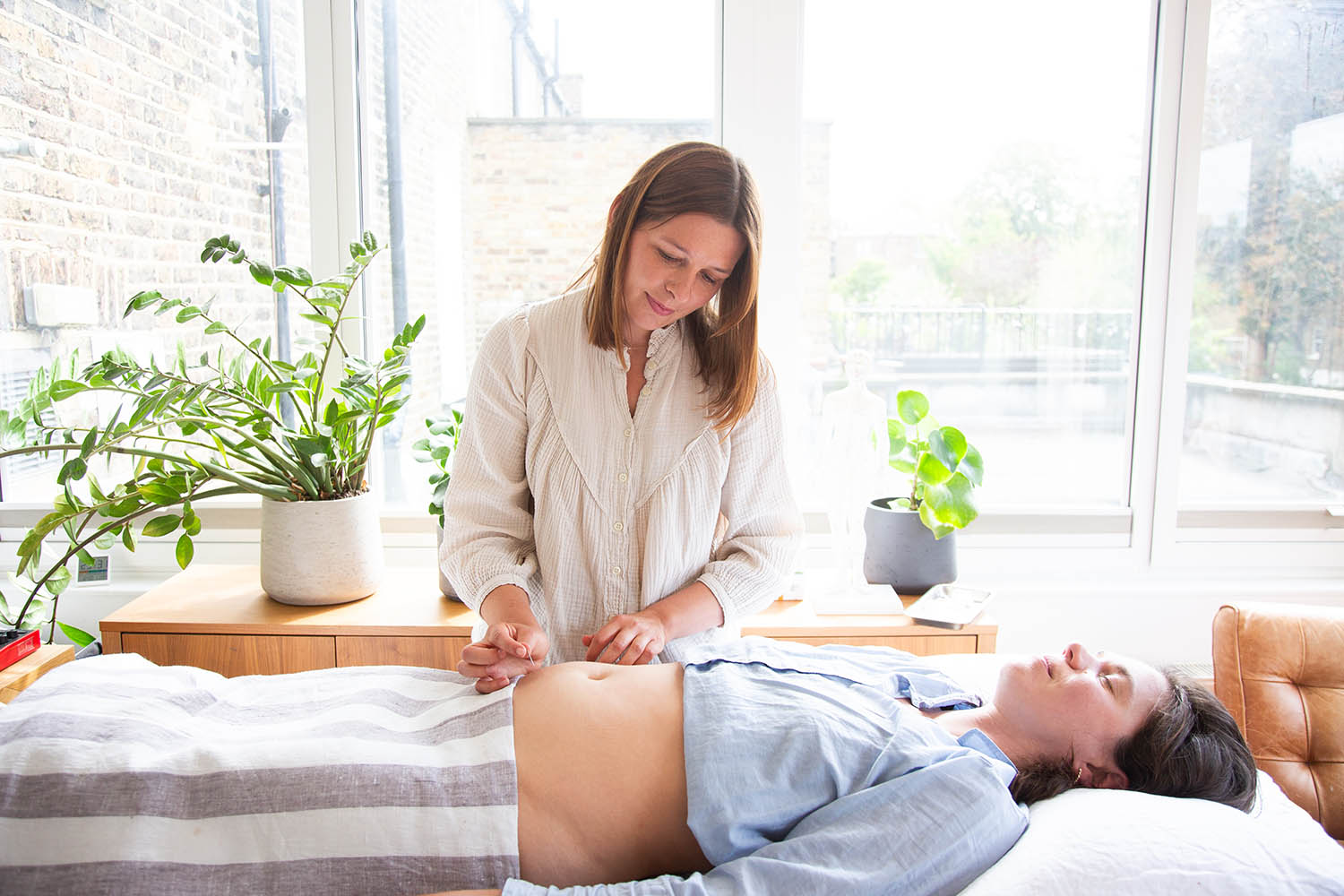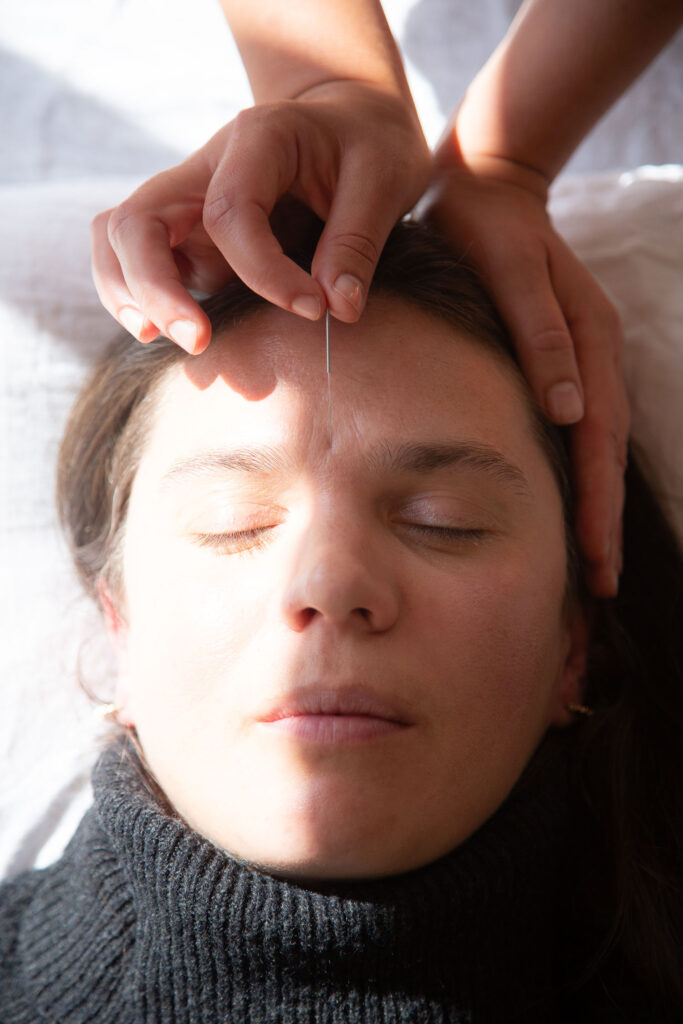
Vaida Milne-Tyte reports on supporting women’s health throughout life
My journey into Traditional Chinese Medicine began with my own transformative experience with acupuncture as a young mother seeking relief from fatigue, PMS-induced mood swings and irregular periods. Working with an acupuncturist made me feel heard and held, and I left my weekly sessions feeling incredibly relaxed and rejuvenated. But most importantly, after a while all of my symptoms disappeared! This inspired me to commit myself to helping others through this remarkable approach.
Acupuncture is an ancient practice that originated in China more than 2,000 years ago. It involves inserting thin needles into specific points on the body to stimulate natural healing and improve overall wellbeing. Research shows that acupuncture can be especially effective in supporting women’s health, from managing menstruation discomfort and regulating cycles to aiding fertility, pregnancy, and menopause. It offers a holistic, natural approach while using acupuncture needles along with other healing techniques, combined with lifestyle and dietary advice rooted in Traditional Chinese Medicine (TCM).

How Acupuncture Works
According to TCM, our bodies have a network of pathways, called meridians, through which energy, or Qi (pronounced “chee”), flows. These meridians connect different organs, tissues, and functions. Disruptions or imbalances in this flow can lead to pain, headaches, insomnia, hormonal imbalances, heavy or absent periods, digestive issues and a variety of other health issues. As acupuncturists, we aim to restore balance by unblocking these pathways and allowing Qi to flow freely and encourage the body to heal. In addition to needles, I use a variety of tools to enhance the effects of acupuncture:
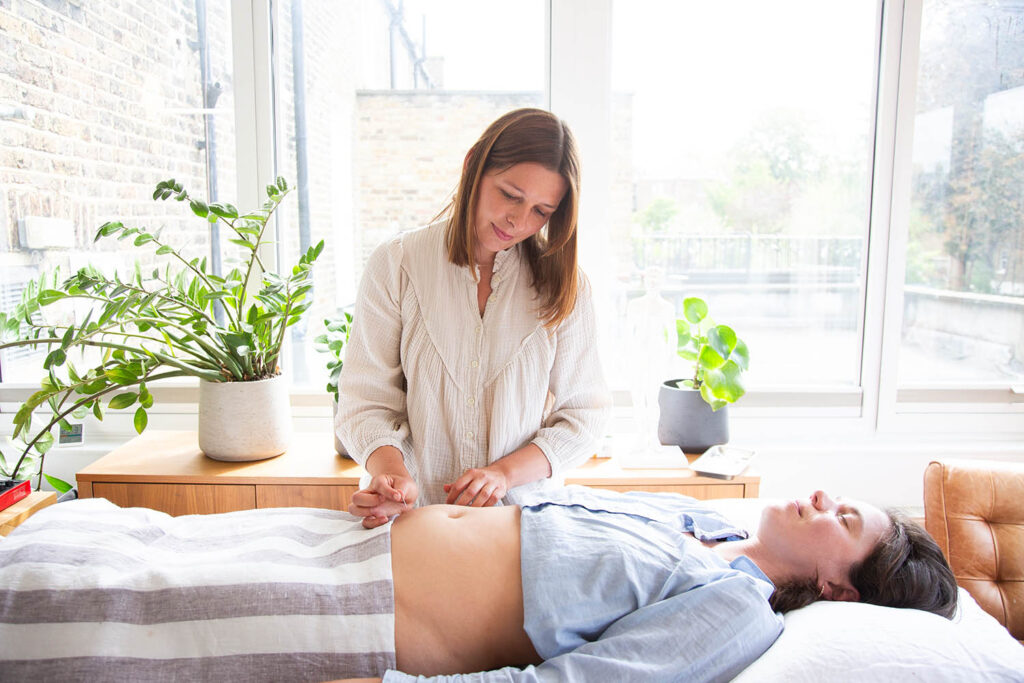

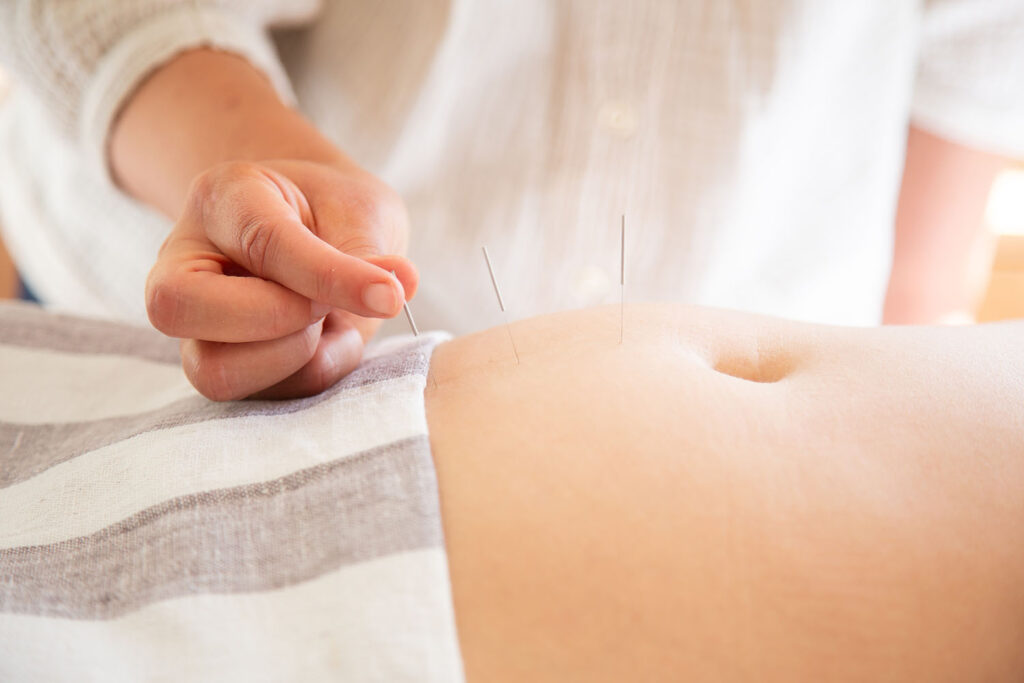
Gua Sha – scraping the skin with a smooth-edged tool to improve circulation and reduce muscle tension.
Fire cupping – heated glass cups are applied to the skin, creating suction that increases blood flow and promotes healing.
Electro-acupuncture – a form of acupuncture where small electrical currents are passed through the needles to enhance stimulation of acupuncture points.
Moxa – burning dried mugwort (a medicinal herb) near the skin to warm acupuncture points, stimulate circulation, and promote healing by enhancing the flow of Qi. This technique is widely used in pregnancy to encourage a breech baby to turn.
TDP lamp – a therapeutic device used in traditional Chinese medicine that emits far-infrared heat to promote circulation, reduce pain, and support healing.
In Western medicine terms, acupuncture is believed to work by stimulating the nervous system. When thin needles are inserted into specific points on the body, they trigger responses in the brain, spinal cord, and muscles. This stimulation can lead to the release of neurotransmitters, such as endorphins (natural painkillers) and serotonin, which help regulate mood and pain. Acupuncture can also enhance blood flow, reduce inflammation, and modulate immune system responses, providing relief for various conditions.
Menstrual Health and PMS
For many modern women, the menstrual cycle can come with a range of discomforts, from premenstrual syndrome (PMS) to irregular periods and severe cramps. Acupuncture can play a significant role in reducing these symptoms by promoting hormonal balance and improving blood flow to the reproductive organs. By targeting specific acupuncture points, practitioners aim to help regulate the flow of Qi, easing the pain, bloating, headaches, and mood swings associated with PMS.
Acupuncture’s ability to alleviate menstrual pain is well-documented, offering a non-invasive alternative to over-the-counter pain relief. For women suffering from more complex issues like polycystic ovary syndrome (PCOS) or endometriosis, acupuncture can reduce inflammation, improve circulation, and support the regulation of hormones.
Fertility and Conception
In recent years, acupuncture has gained significant attention for its role in supporting fertility. Whether a woman is trying to conceive naturally or undergoing fertility treatments like IVF, acupuncture can enhance reproductive health. The treatment helps to regulate the menstrual cycle and increase blood flow to the uterus, creating a healthier environment for conception.
For women undergoing fertility treatments, acupuncture has been shown to reduce the stress and anxiety that often accompany the process. It also improves the success rates of IVF by supporting the body’s response to hormonal therapies and improving the chances of embryo implantation.
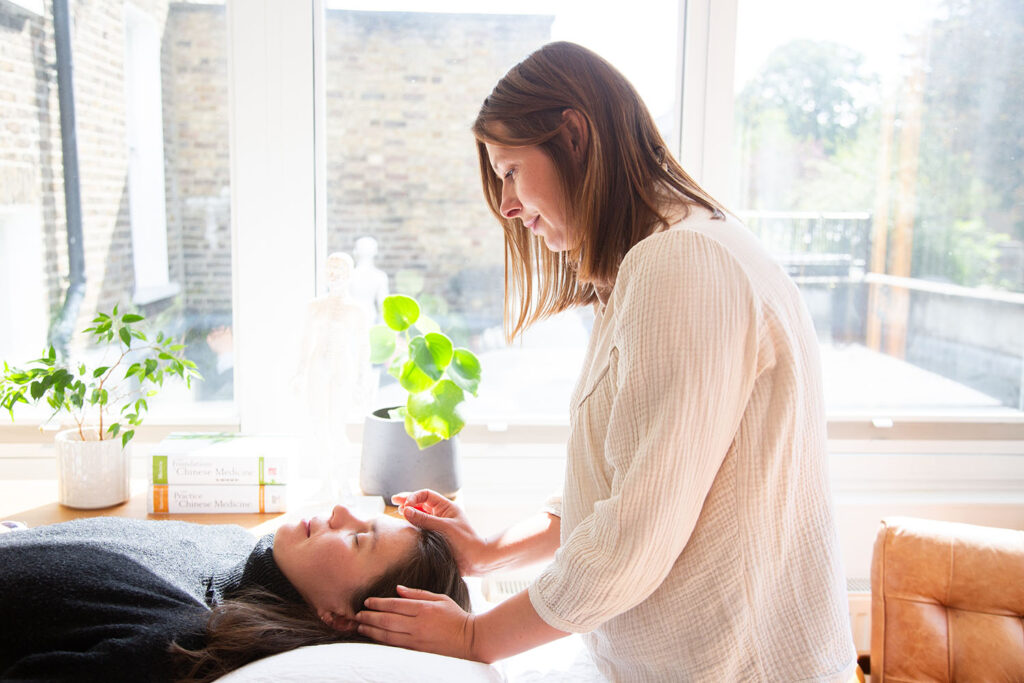
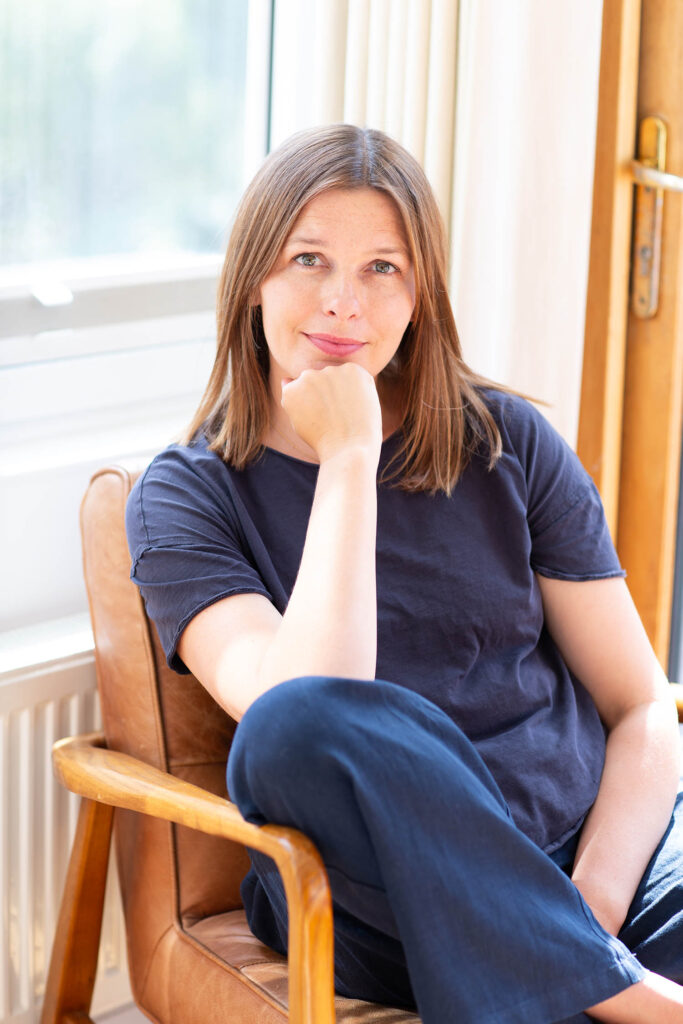
Pregnancy Support
During pregnancy, acupuncture is a safe, drug-free option to manage common pregnancy-related discomforts. In the first trimester, many women experience morning sickness, fatigue, and emotional ups and downs. Acupuncture has been shown to alleviate nausea and vomiting, restore energy levels, and stabilise mood. As the pregnancy progresses, acupuncture can support relieving the aches and pains in the lower back, hips, and legs, common issues as the body adjusts to accommodate the growing baby.
In the final weeks of pregnancy, acupuncture can help prepare the body for labour by aiding softening of the cervix and encouraging the baby to move into the optimal position for birth. Some women also come to my clinic to wanting to induce labour naturally as a way to avoid a medical intervention when this becomes necessary.
Additionally, acupuncture is known to be used for pregnancy-induced conditions such as sciatica, swelling, and carpal tunnel syndrome. The treatment works by promoting better circulation and helping the body manage inflammation and pain.
Postpartum Recovery
After childbirth, the body goes through a significant recovery phase and mothers deserve all the support to help them through this. Pregnancy and birth often leaves them exhausted, depleted and deficient and acupuncture can help them heal. Postnatal acupuncture may help restore energy and blood flow, aiding in physical recovery as well as emotional well-being. This is especially beneficial for women experiencing postnatal depression, anxiety, or fatigue. TCM dietary and lifestyle advice is fundamental too.
Menopause and Beyond
As we approach menopause, we can expect to experience a range of symptoms such as hot flushes, night sweats, insomnia, and mood swings. Acupuncture offers a natural way to manage these symptoms as an alternative or in addition to hormone replacement therapy (HRT).
By targeting specific points on the body, acupuncture may help regulate body temperature, calm the nervous system, and improve sleep quality. It also supports emotional well-being, helping women cope with anxiety, irritability, and mood swings that may arise during this important transitional phase.
Emotional Health and Stress Relief
In addition to its physical benefits, acupuncture has been shown to support emotional and mental well-being. This is my favourite acupuncture benefit as stress can be a root cause of so many ailments. Mothers often face significant stress, whether it’s balancing work and family, coping with fertility challenges, or dealing with the emotional shifts of menopause. Acupuncture provides calm by stimulating the body’s natural release of endorphins and regulating cortisol levels, which can help while to managing stress and anxiety. Most of my patients experience a deep relaxation and reset during the treatment, which leaves them feeling lighter and more able to deal with life.
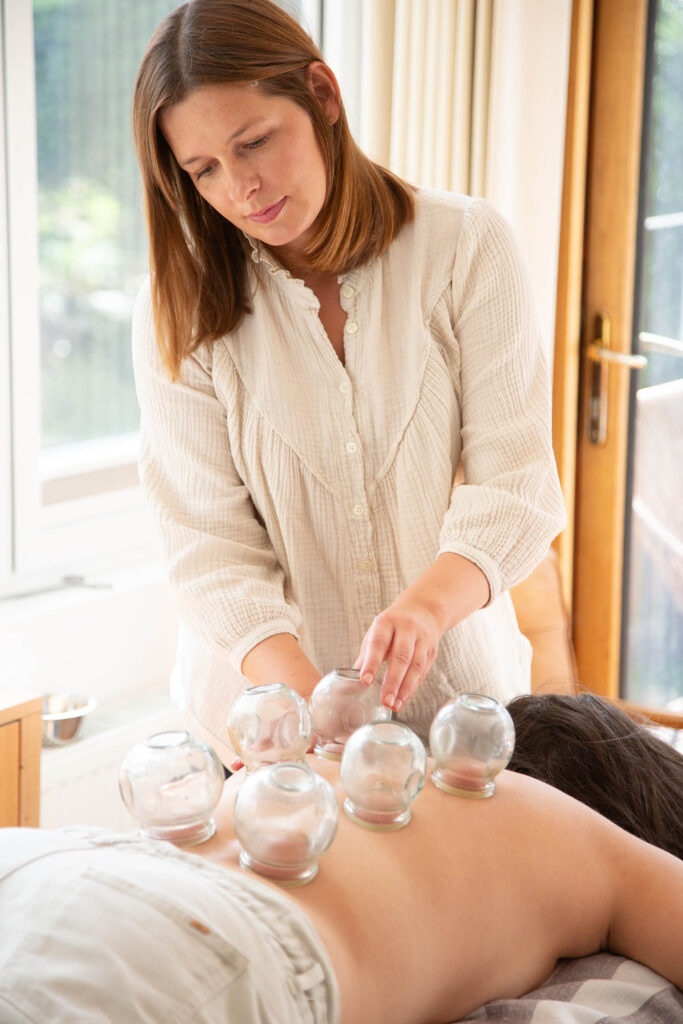
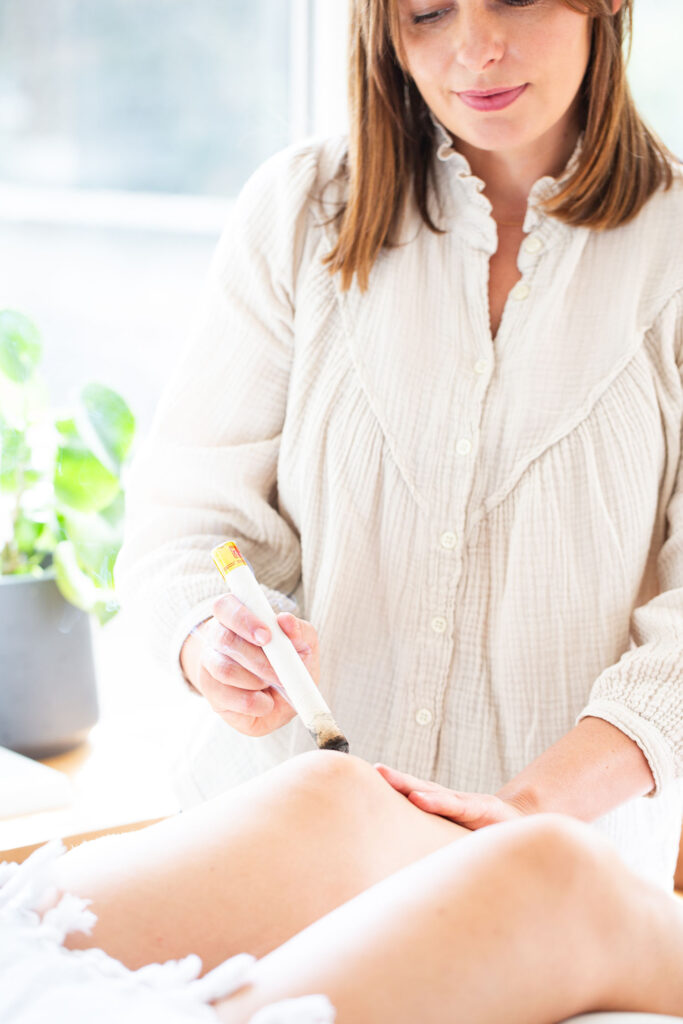
Vaida Milne-Tyte is a fully licensed acupuncturist, accredited by the British Acupuncture Accreditation Board and member of the British Acupuncture Council and The Acupuncture Fertility Network. She practises from Down to Earth Yoga Studio, Brecknock Road on Mondays and Thursdays, and Moon Women’s Health Clinic Wednesdays and Saturdays. For further information and bookings see www.vacupuncture.co.uk.
Images credit: Juliette Neel

